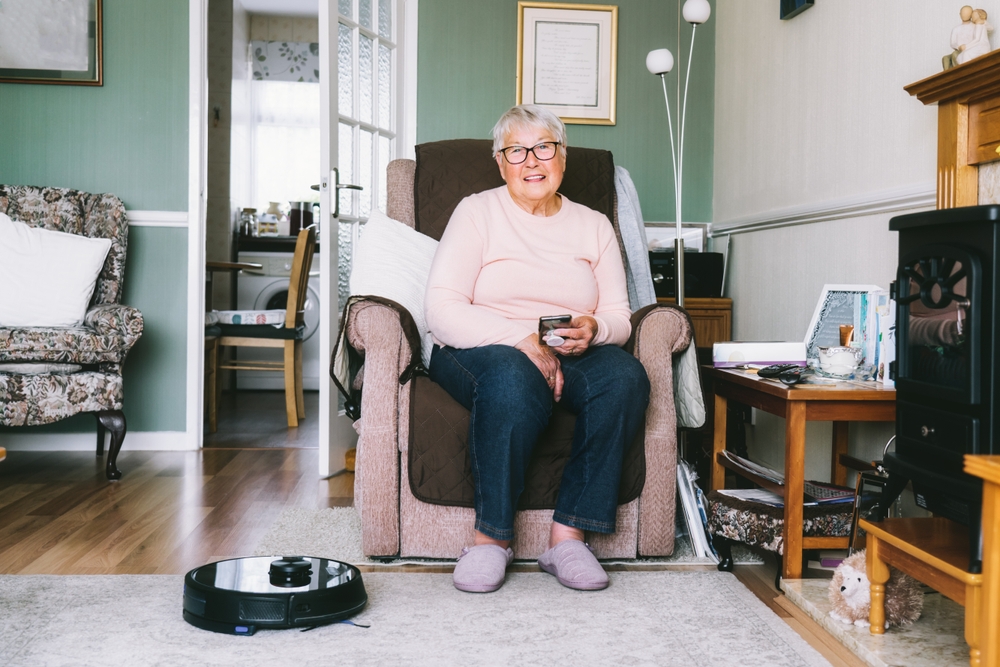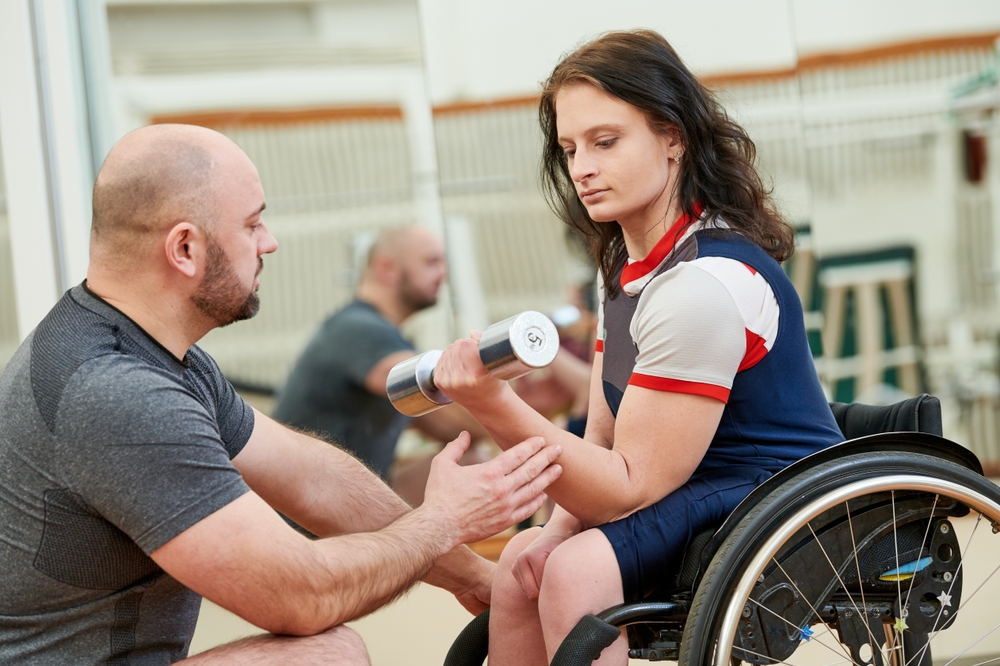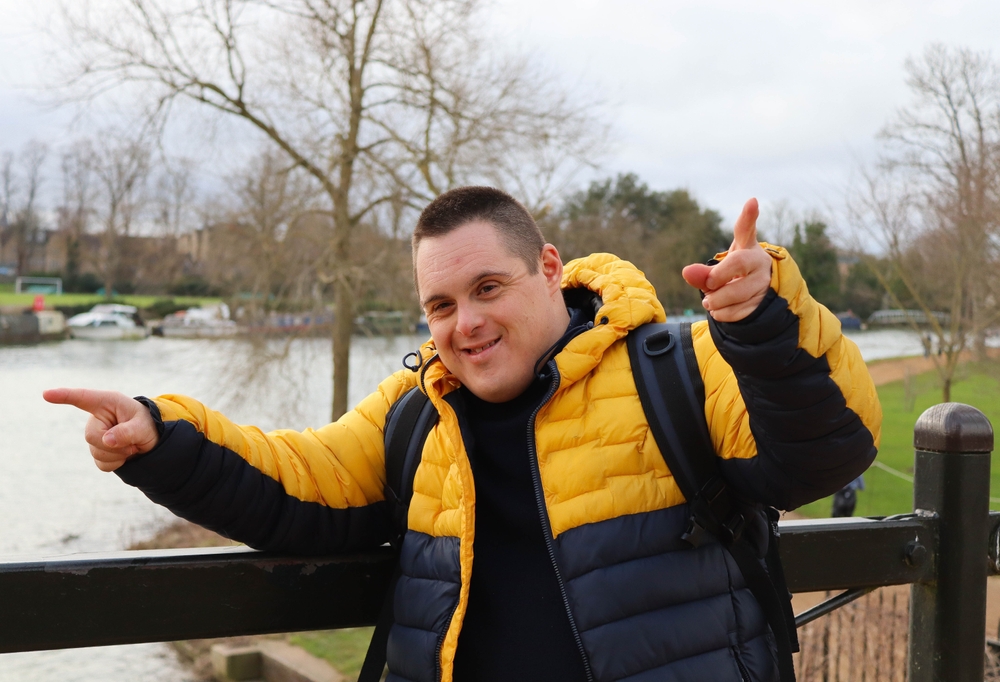Make an Appointment
Talking to someone with Down syndrome should always be done with clarity, respect, and patience. While individuals with Down syndrome may have delays in learning, memory, and speech, they can still understand much of what is said to them.
Communication challenges can include auditory processing difficulties, speech delays, and a gap between understanding language and expressing it. However, with the right approach, and in many cases, speech therapy, communication can be strengthened significantly.
Let’s explore why speech is sometimes difficult for people with Down syndrome, how to interact respectfully, and the therapies and strategies that can help improve communication skills.
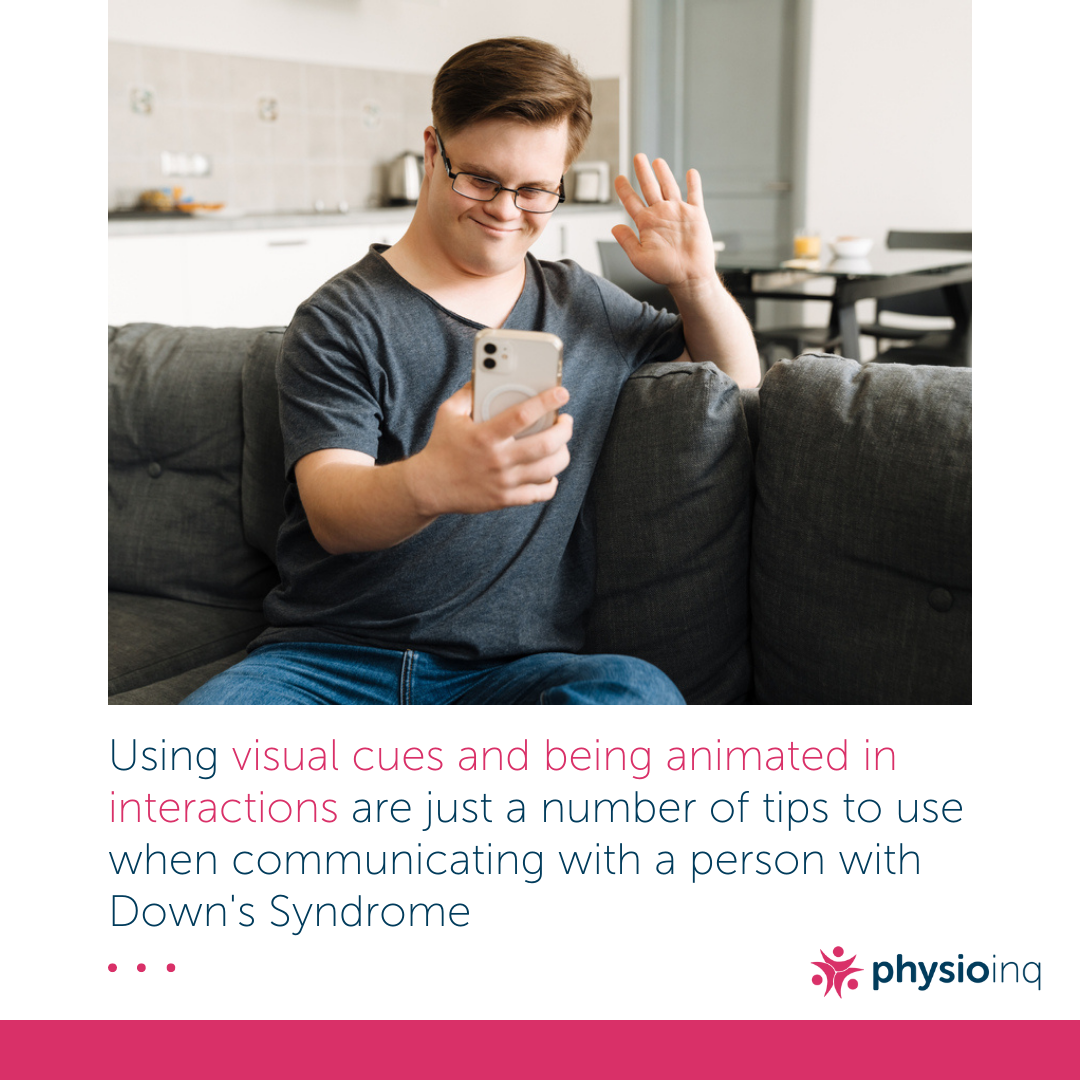
Why do people with Down syndrome struggle with speech?
Down syndrome is caused by an extra chromosome on the DNA strand. This affects brain development, leading to differences in memory, auditory processing, and speech production.
Here are some key factors that contribute to communication difficulties:
Auditory tonal processing
- About 40% of speech understanding relies on tone. People with Down syndrome often have difficulty processing tonal variations, making language harder to interpret.
Hearing issues
- Some individuals have narrower ear canals, leading to wax build-up or fluid retention, which can reduce hearing. Hearing loss is also more common by middle age, further affecting speech and language development.
Neurological differences
- Studies show smaller volumes of grey and white matter in the brain, as well as a smaller cerebellum and abnormalities in the brainstem and frontal lobes. These structural differences affect motor control, speech clarity, and language processing.
Despite these challenges, many individuals with Down syndrome understand more than they can verbally express, which is why patience and supportive strategies are essential.
You can read more about this at Down Syndrome Australia – Communication.
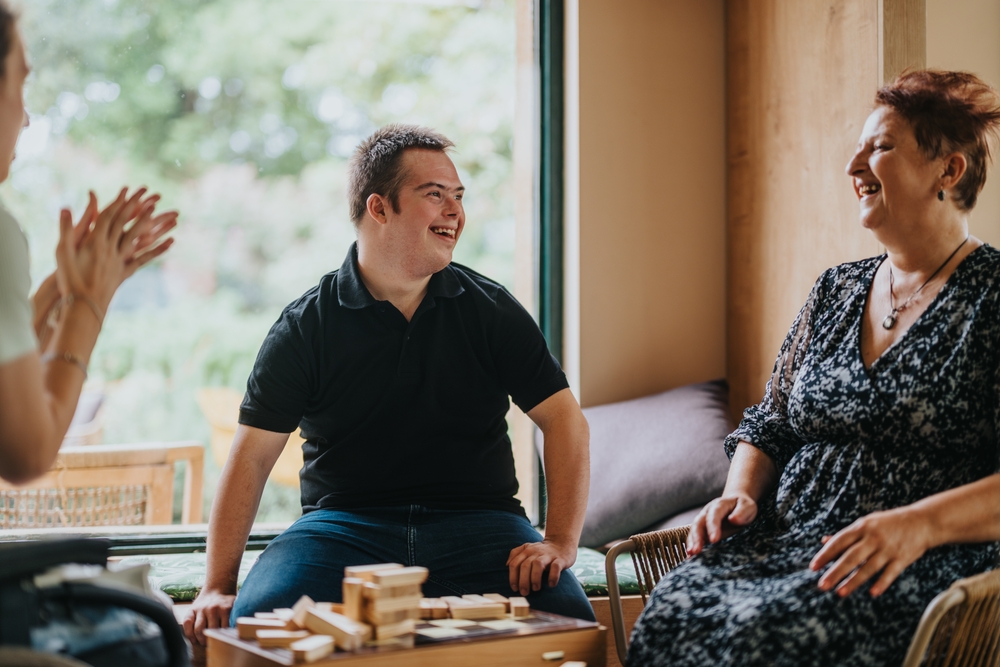
How to Communicate Respectfully
People with Down syndrome can usually comprehend what you’re saying. The difficulty lies in how quickly and clearly they can respond. When communicating, keep these key guidelines in mind.
What NOT to Say
- Don’t make assumptions about what the person can or cannot understand
- Avoid negative labels like “victim of,” “suffering from,” or “afflicted by”
- Don’t speak to their caregiver instead of addressing them directly
- Avoid patronising language or assuming they are “special” or “unfortunate”
Helpful Communication Strategies
- Speak clearly and simply, but not in a childish or exaggerated way
- Allow extra time for responses – this is called the receptive-expressive gap
- Use visual cues like gestures or pictures to support understanding
- Stay physically close and maintain good eye contact
- Be patient and encouraging, showing enthusiasm for their efforts
- Rephrase if needed, rather than repeating the same words louder
These small adjustments can make a big difference in making communication easier and more meaningful.
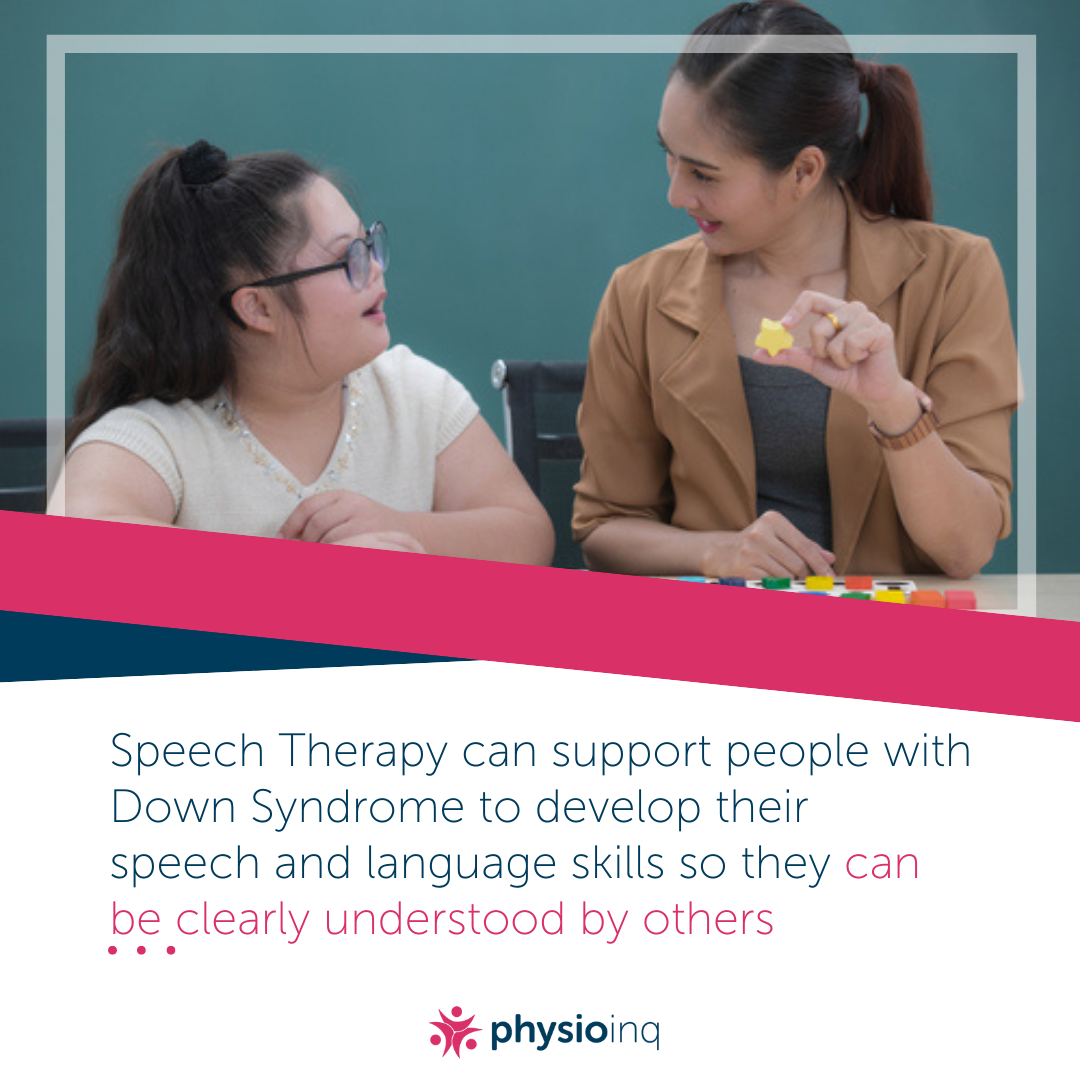
How do you interact with a child with Down syndrome?
Children with Down syndrome have delays in development, yet it’s not always across the board. Where one child excels, another might struggle. Therefore, it’s best to not assume competence levels.
While every child does have an individual experience, there are some commonalities across the board. With the knowledge of these common factors seen in most children with Down syndrome, continue to treat each child with individual respect and support.
Let’s dive into the commonalities.
Research has found the portion of the brain that understands language is stronger than the outward expression language portion of the brain. Therefore, when communicating with someone with Down syndrome, give them time to respond.
They have a strong capability to understand your words and the difficulty comes in when responding back to you. Give them a bit more time to respond. This break in receiving and giving communication is known as the respective-expressive gap.
For children, vocabulary is a strength, and it continues to develop as they mature. Visual memory is also strong, and often why children with Down syndrome are often excellent readers.
This combination of a strong vocabulary and visual memory makes sense due to the high level of understanding of information that’s coming in. When you flip this around and it’s time for them to communicate back to you is when the respective-expressive gap comes into play.
Often, children with Down syndrome are very social and use non-verbal cues for a longer period due to their delayed speech and language skills. They’re eager to communicate! You’ll notice a lot of eye contact, hand gestures and facial expressions.
Two common weaknesses a child with Down syndrome experiences are poor auditory short-term memory and auditory processing. This means it may take longer to link sounds to objects and places as they grow up.
Common Strengths
- Vocabulary recognition tends to be strong
- Visual memory is often well-developed, making many children excellent readers
- Social motivation is high – they often use eye contact, gestures, and facial expressions to engage
Common Challenges
- Short-term auditory memory is weaker, making it harder to link sounds with objects or places
- Auditory processing delays mean it takes longer to process spoken instructions
Ways Parents and Caregivers Can Help
Pairing words with objects and actions is an effective way to strengthen understanding:
- “Your blanket is on the couch.”
- “You’re drinking your milk. You like whole milk.”
- “The horse is brown.”
Repeating descriptive language in daily activities helps the child build a working vocabulary. With support from family and hard work themselves, children with Down syndrome often develop effective communication skills.
Books with repetition and bright visuals can also encourage children to read along and practice pronunciation. If the book includes an action word, act it out together. If it’s an object, show the real item to reinforce the word.
In addition, many forms of therapy can help aid a child to close the gap between Down syndrome and communication. The most common is speech therapy, to learn more about speech therapy, visit our info page

Does Speech Therapy help Down syndrome?
Yes. Speech therapy is one of the most effective ways to improve communication skills in children and adults with Down syndrome.
Therapy can begin as early as infancy and may include:
- Strengthening the tongue and lips for better articulation
- Using sign language or visual aids to support early communication
- Developing eating and drinking skills for oral-motor coordination
- Helping caregivers use effective interaction techniques in daily life
Speech therapists create individualised programs that address each person’s needs. Parents and caregivers are often included so they can continue practicing communication strategies at home, in the park, or while shopping.
When started early, speech therapy can significantly reduce the communication gap and build confidence.
You can learn more about these services at Speech Pathology Australia.
Tips for Everyday Communication
Here are some simple ways to make communication smoother for someone with Down syndrome:
- Talk about day-to-day activities to keep conversation practical and relatable
- Use visual cues and gestures to support your words
- Copy their expressions or gestures to encourage interaction
- Use repetition and routines to help reinforce vocabulary
- Always show patience and enthusiasm to build confidence
In conclusion, people with Down syndrome do experience a different sensory world than those without. Due to the extra chromosome, some abnormalities can form resulting in learning delays.
Each person has a different level of comprehension. It’s important to note that research has found commonalities among people with Down syndrome, however, each experience is unique to the person.
Implementing a regular speech therapy practice and aid at home and in their everyday environments can lead to increased communication. Again, for those with Down syndrome, understanding and visual memory are often a strength, while tonal processing and expressive language are a weakness.
It’s important to speak directly to the person with clear, concise words. Allow them the time they need to respond and then support accordingly. In short, don’t assume they cannot understand you.
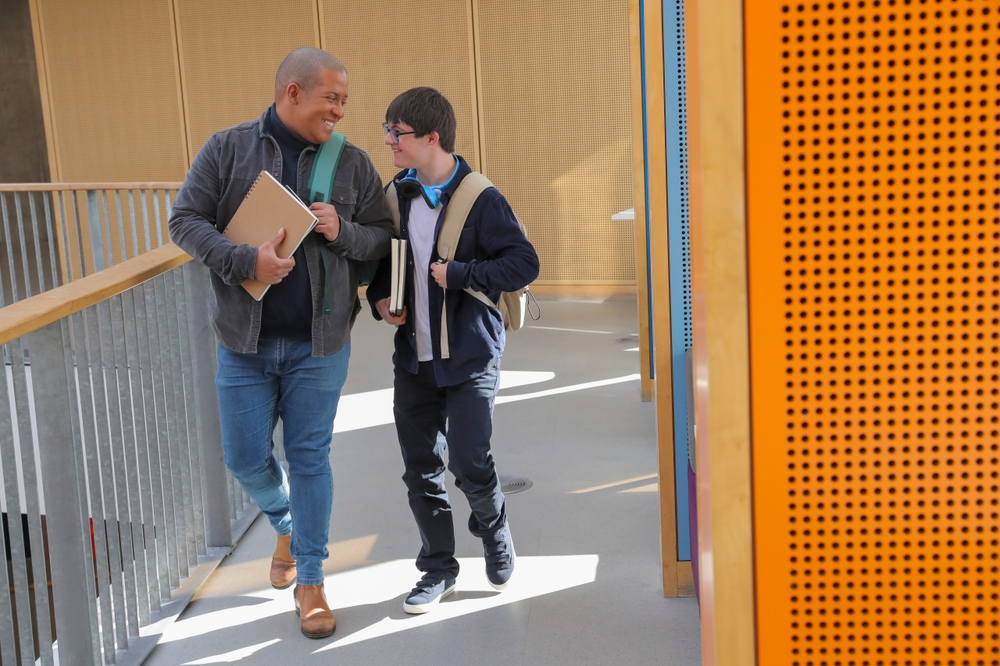
Frequently Asked Questions (FAQs)
Do people with Down syndrome understand what you’re saying?
Yes. Most individuals understand far more than they can verbally express. Giving them extra time to respond is important.
What is the receptive-expressive gap?
It’s the difference between how much a person understands and how much they can verbally express. This gap is common in children and adults with Down syndrome.
Can speech therapy really make a difference?
Absolutely. Early and consistent speech therapy can improve articulation, memory, and overall communication skills.
Do children with Down syndrome learn better visually?
Yes. Visual memory is often a strength, which is why books, pictures, and gestures are helpful communication tools.
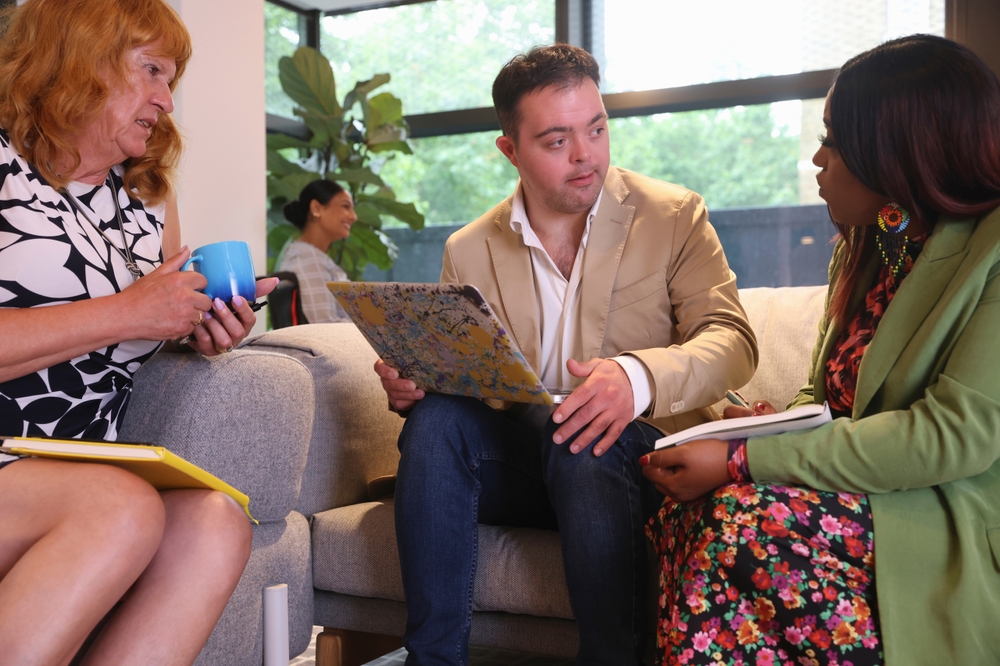
People with Down syndrome may experience speech and language delays, but they are eager to communicate and understand much of what is said to them. By speaking clearly, allowing extra response time, and using visual and social cues, you can make conversations easier and more meaningful.
Speech therapy, combined with support from family and caregivers, plays a key role in closing the communication gap. Early intervention builds confidence and helps children and adults express themselves more effectively.
Next Step
If you’re looking to support a loved one with Down syndrome in developing stronger communication skills, book a speech therapy session with our experienced team.
We can provide tailored strategies and support for better communication at home, school, or in the community.

Date Published: Thursday, February 10, 2022
Locate a Speech Pathology
Service Near me
Get the experience & convinence you deserve to support your or a loved one's allied health needs.
Our Speech Pathology team are currently serving & taking appointments in the following states and regions in Australia:
Need to get into direct contact with ur Client Services team? We're all ears. Call our team directly on 1300 731 733

